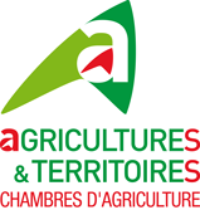Document type: report published by CIWF France
Author: CIWF France
Preview: The French regions as a key level of government, on condition that they leverage transition
Shaping tomorrow's livestock farming: available levers in the regions
Analysis of regional livestock farming policies reveals an overall lack of ambition in the face of the challenges of animal welfare and agro-ecological transition. Most Regions do not mention animal welfare in their agricultural strategies and, when they do, this is rarely translated into material, binding criteria in their financial support structures. When discussing transition, the Regions often place organic farming on the same level as High Environmental Value (HVE), a certification that includes no livestock farming criteria. The amount of additional funding granted to more sustainable models remains too low, which limits their impact.
There are nevertheless significant disparities between the Regions:
- The Pays de la Loire and Brittany set ambitious targets, but their systems are still not robust enough to reverse the trend towards industrialized livestock farming.
- Grand Est and Hauts-de-France focus on competitiveness and productivity, imposing few or no conditions to encourage sustainable farming.
- Nouvelle-Aquitaine is the most advanced region, with funding schemes geared more towards organic farming and more exacting animal welfare criteria. Their impacts on the livestock industry have yet to be demonstrated. (...)
For the regions to play their full part in the transformation of livestock farming, five major changes are needed:
1- Introduce real conditionalities in access to public aid (...)
- Exclude from regional support projects that do not commit to a real transition (e.g. cage farming, overcrowding).
- Integrate strict, progressive criteria to make access to aid conditional on measurable commitments to the environment and animal welfare.
2- Prioritize and reward virtuous practices in the allocation of subsidies (...)
- Prioritize funding for farms committed to a genuine agro-ecological transition (free-range farming, access to pasture, food autonomy).
- Clearly differentiate levels of certification: no longer equate approaches with very different requirements (e.g. AB and HVE).
- Significantly increase bonuses for models that respect animal welfare and the environment.
3- Anticipate regulatory changes and support farmers in the transition (...)
- Prioritize FEADER regional aid for investments that will be affected by legislative changes (e.g. phasing out cages, improving rearing conditions).
- Set up a specific support plan for affected farmers, including financial support for investment and training to help them make the transition.
4- Support the demand for transitional sectors and ensure the existence of outlets for livestock farmers (...)
- Respect and reinforce EGAlim obligations, by ensuring a sustainable and local supply of livestock products in public catering.
- Prioritize investment in processing facilities (abattoirs, fruit factories, etc.) adapted to sustainable production, to guarantee the autonomy of these livestock sectors and ensure local links between farmers and consumers.
- Develop organic farming sectors, from upstream to downstream, to ensure better remuneration for farmers and encourage transition.
- Strengthen the resources allocated to Territorial Food Projects (TAPs) and move their focus to agro-ecological transition.
5-Coordinate public policies for a coherent transition (...)
- Support a controlled development of livestock herds, adapted to local environmental challenges, by limiting the loss of capital currently experienced by those farms most committed to transition.
- Adopt a national livestock transition plan, combining a production component with a consumption component, with quantified, local objectives.
- Change the CAP to align European funding with the challenges of transition, in particular:
1. Encourage the "Food Not Feed" approach, and prioritize crops for human consumption rather than those destined for animal feed.
2. Reinstate support for organic farming, to stabilize farms already committed to transition.
3. Increase Pillar II funds to finance agro-ecological transitions more widely.
4. introduce eco-regimes linked to animal welfare, by imposing exacting criteria and providing incentive funding.
Report leading to a news item on 25/02/2025 on the CIWF France website: Transition de l’élevage et leviers régionaux : notre nouveau rapport présenté au salon de l’agriculture






